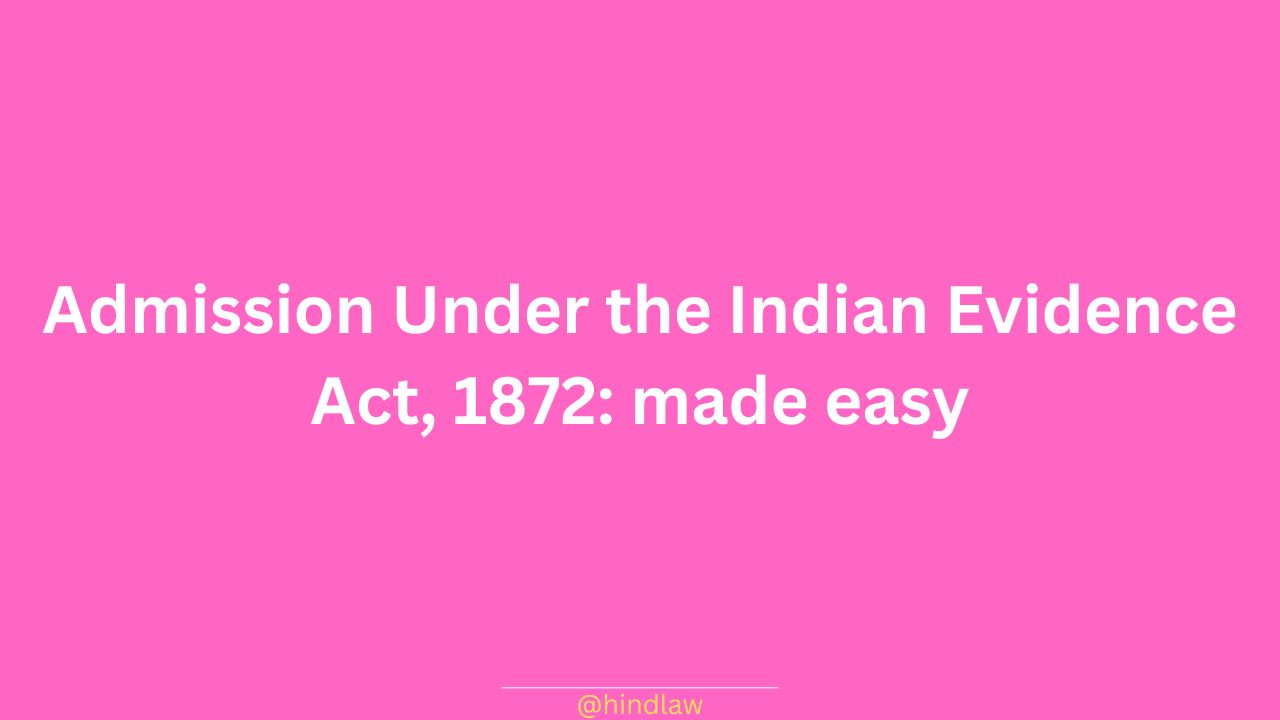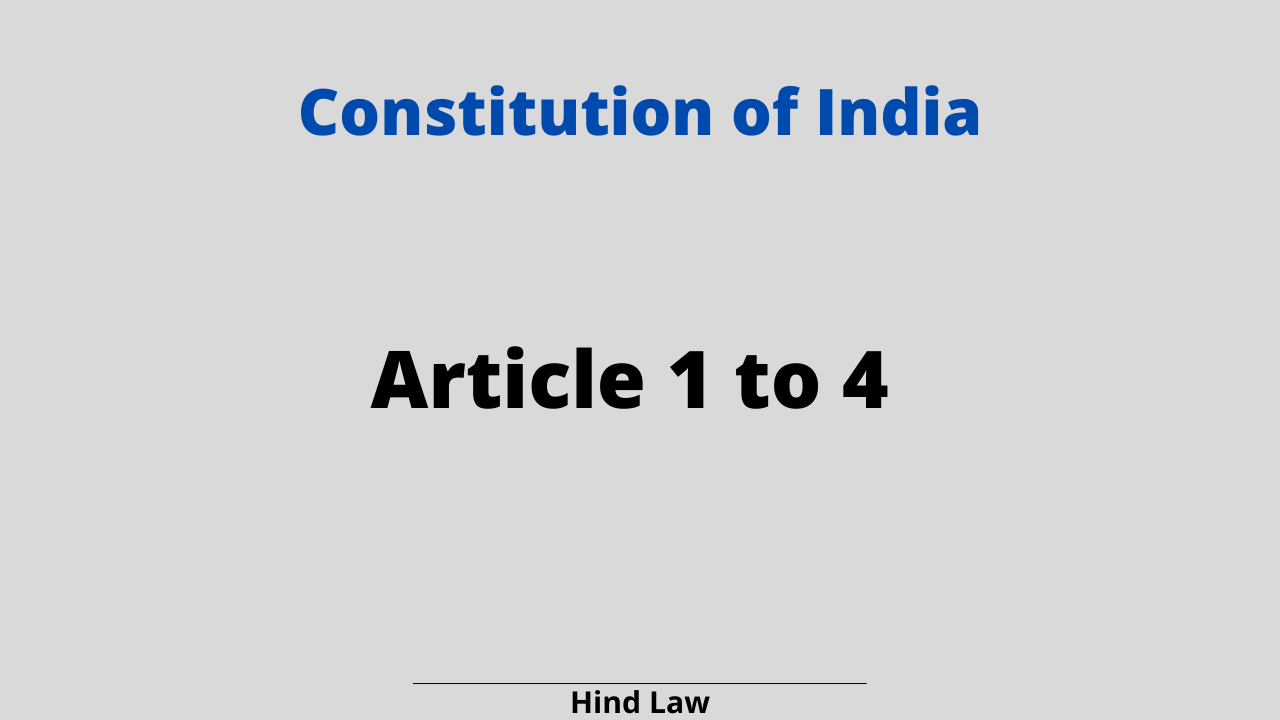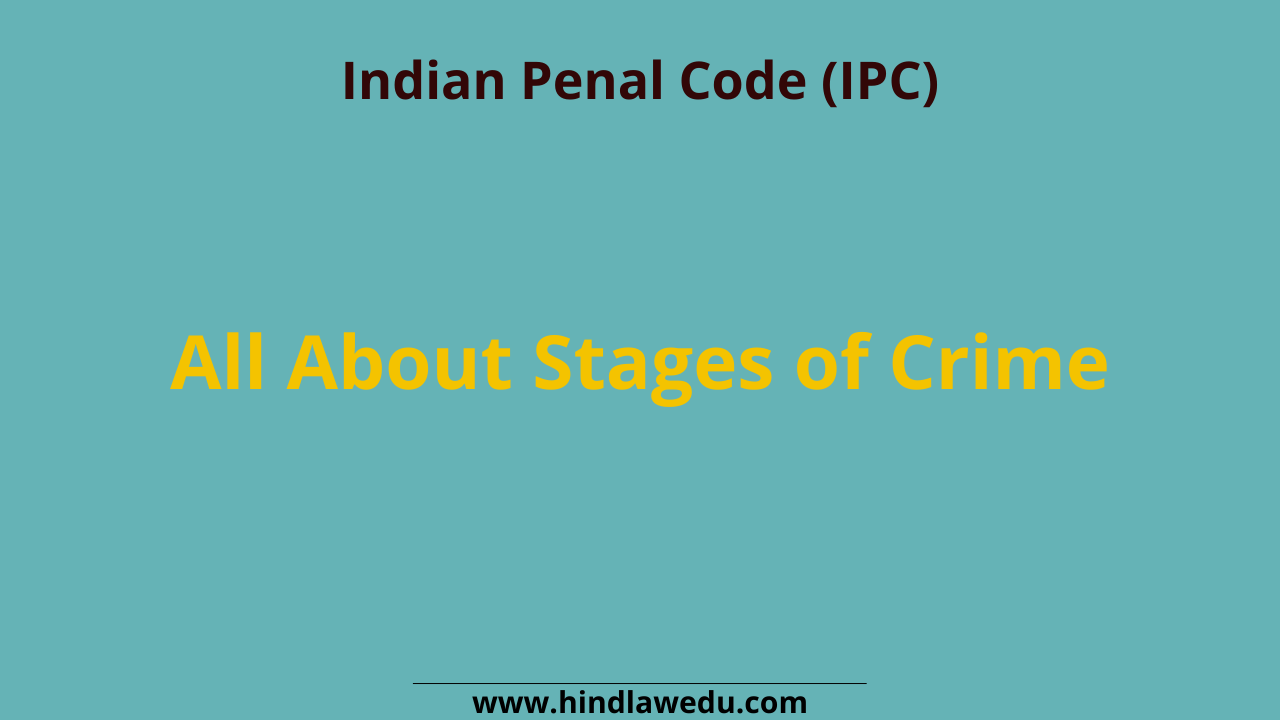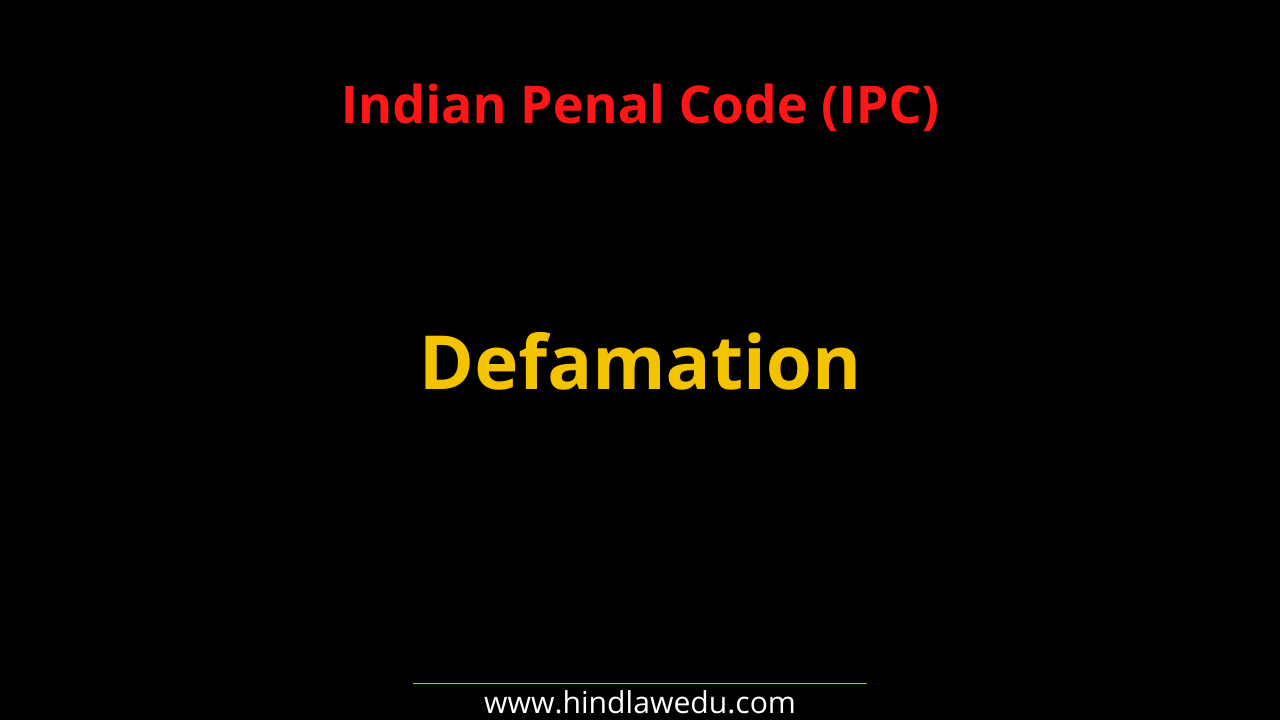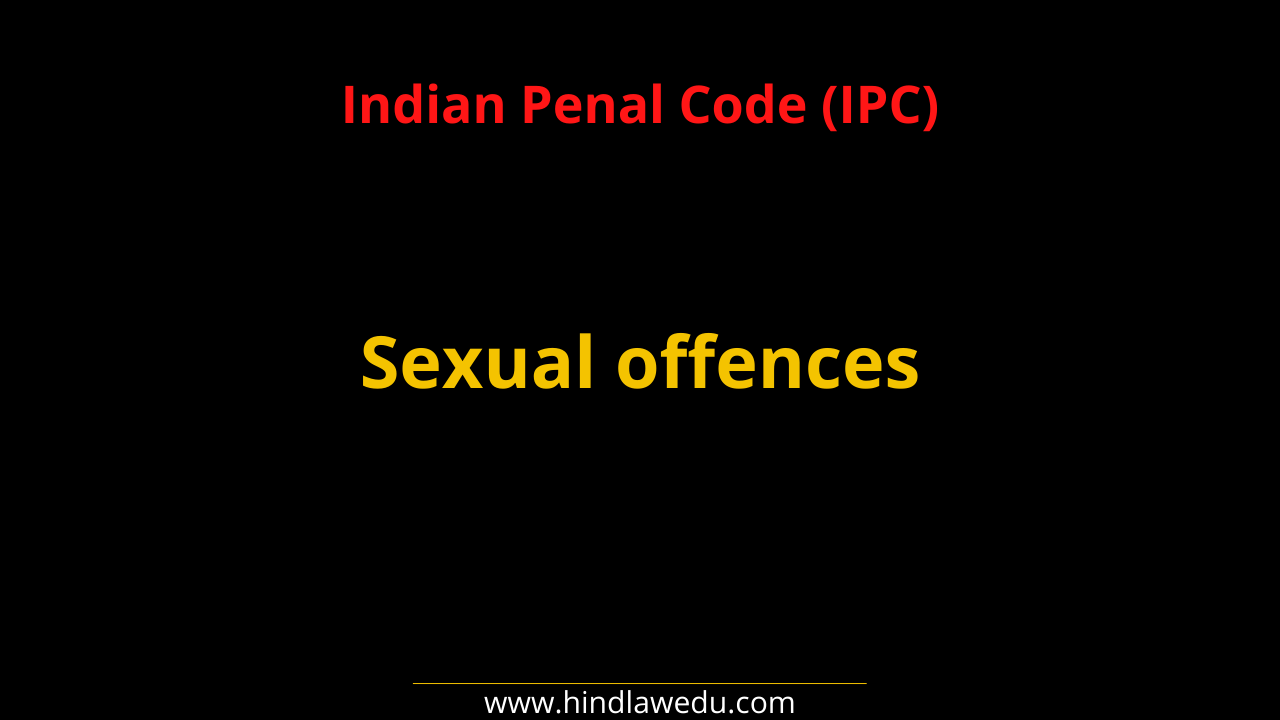Table of Contents
Introduction
There is no exact definition of crime in the Indian Penal Code, 1860. Crime is a social wrong committed by an individual. A criminal wrong differs from a civil wrong as it is a wrong committed against society due to its serious nature. In comparison, civil wrong is a wrong committed against an individual, its main focus is on providing resolution rather than punishment.
Criminal law is a body of codified laws that defines the acts which are illegal and can affect the individual, property, and society. Crime threatens and harms public welfare and safety. Whenever a crime happens intentionally, there is a full-fledged process or stages behind to make it happen.
In case of every crime there are four stages that are as follows:
Intention (1st Stage of crime)
The first stage in committing a crime is to have criminal intent. Intention refers to doing anything with one’s will, desire, voluntariness, dishonesty, and for a specific reason. The ironic fact about this stage is that the law cannot punish the person just for having an intention to do any illegal act because it is very difficult to judge if a person possesses any such intention. Just having an intention will not constitute an offense.
Preparation (2nd Stage of crime)
Preparation is the second stage. It means to arrange the necessary resources for the execution of the intentional criminal act. ill Intention and preparation alone are not enough to constitute a crime until the act has been committed.
There are certain exceptions where mere preparation will be considered as a criminal act and is punishable under IPC like wagering war against govt. of India (Section-122), planning for Dacoity (section – 399), counterfeiting coins etc.
Attempt (3rd Stage of crime)
After the preparation of the plan an attempt is a direct movement towards the execution of a crime. Even if a person fails while attempting due to any external hindrance or cause then he will be made punishable for his attempt even if he was not successful and the punishment will be decided on the basis of the gravity of offences.
Section 511 is a general provision dealing with the attempts to commit offences which are not made punishable under IPC by other specific sections. It makes all attempts to commit offences punishable with imprisonment and not all those punishable with death.
An attempt is made punishable because every attempt, falls short of success, must create alarm, which itself is an injury and the moral guilt of the offender is the same as if he had succeeded. Moral guilt must be integrated to justify the punishment, if the injury is not as great as the act committed then only half the punishment will be awarded.
Illustrations:
(a) A makes an attempt to steal some jewels by breaking open a box, and finds after opening the box, that there is no jewel in it. He has done an act towards the commission of theft, and therefore is guilty under this section.
(b) A makes an attempt to pick the pocket of Z by thrusting his hand into Z’s pocket. A fails in the attempt as a consequence of Z’s having nothing in his pocket. A is guilty under this section.
Sec. 307 IPC as well as the section 308 deals with the offences of attempt to murder and attempt to commit culpable homicide not amounting to murder respectively. In these cases, the act committed is such that it may cause the death of the person.
As per section 307 IPC, attempt to commit murder is a punishable offence, punishment for which is up to 10 years of imprisonment and if the act committed has caused hurt to the person, then punishment may extend to life imprisonment and fine both.
Note: An act which is impossible to commit cannot be attempted and so is not culpable (liable for the act). Such as, shooting the cloud is an impossible act.
Accomplishment (4th Stage of crime)
The last stage in the commission of an offense is its successful completion. If the accused becomes successful in his attempt to commit the crime, he will be guilty of the complete offense. If he fails, he will only be charged with attempting. If the crime is complete, the offender will be tried and punished as per the specific provisions provided in the Indian Penal Code.
Also Read:
General Exceptions under the Indian Penal Code (Simplified)
Abetment under the Indian Penal Code (Simplified)


